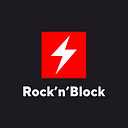Must-Have Tools and Platforms for Crypto Token Development
In the rapidly evolving world of blockchain technology, crypto tokens development has become a pivotal aspect of decentralized applications and ecosystems. As the demand for innovative blockchain solutions continues to rise, the importance of choosing the right tools and platforms for DeFi token development cannot be overstated. This article explores the significance of these tools and provides key considerations for crypto developers when selecting the appropriate resources for their projects.
The Role of Tools and Platforms in Crypto Token Development
Efficient tools streamline crypto token development by simplifying coding, testing, and deployment, reducing time to realization. Choosing secure and reliable platforms is crucial for a token’s integrity, with reputable options offering built-in security features and regular updates. In the expanding blockchain landscape, prioritizing interoperability is key. Developers should opt for tools supporting industry standards to ensure compatibility across diverse tokens and platforms.
🔥 Check out our full guide!
Blockchain Platforms
Choosing the right blockchain is crucial for successful DeFi token development, ensuring long-term success.
Ethereum, with Solidity as its preferred language, offers essential tools like Remix, an open-source IDE, and Infura, a scalable API service.
BNB Chain’s high-performance ecosystem, including BNB Chain Wallet and PancakeSwap, provides alternatives for seamless token creation.
When deciding between Ethereum and BNB Chain, factors such as scalability, community support, transaction costs, and security features should be carefully considered to make informed choices and ensure project sustainability.
Integrated Development Environments
Integrated Development Environments (IDEs) are essential for efficient crypto token development. Visual Studio Code (VS Code) stands out with its versatility and Solidity support, making it ideal for Ethereum-based projects. Remix, an open-source application designed for Ethereum smart contracts, offers an intuitive interface and real-time compilation, streamlining the coding and testing of Solidity. These tools enhance collaboration and simplify the development process for crypto tokens.
Smart Contract Platforms for Crypto Token Development
Smart contracts are vital for crypto tokens, governing decentralized applications. Platforms like Truffle Suite simplify Ethereum contract development with automated testing, scriptable deployment, and support for linking. Embark offers an integrated environment with tools for smart contract deployment, testing, and real-time feedback, streamlining development processes.
No-Code Blockchain Solutions
No-Code solutions, exemplified by platforms like MyWish, democratize crypto token development. Users, even without programming skills, can effortlessly design, deploy, and manage smart contracts. MyWish’s cross-chain solutions simplify interactions between blockchain networks, expanding opportunities and making crypto accessible to a wider audience.
Token Standards and Templates
Standardization is pivotal in crypto token development for seamless interoperability across blockchains. Key standards include ERC-20 for fungible Ethereum tokens, ERC-721 for NFTs, and ERC-1155 for flexibility. On BNB Chain, BEP-20 ensures fungible token compatibility, while BEP-721 manages non-fungible assets. For secure development, OpenZeppelin Contracts offer audited templates.
Security Auditing Tools
In crypto token development, security is paramount. This section covers key security auditing tools, emphasizing the importance of robust code analysis. Tools like MythX provide automated security analysis for Ethereum smart contracts, while Slither addresses vulnerabilities in Solidity code. Professional auditing platforms, including OpenZeppelin audits and Rock’n’Block security audits, offer comprehensive reviews, enhancing security measures and contributing to the integrity of the crypto token ecosystem.
Wallet Integration Tools
Launching a token sale on your website requires adept navigation of cryptocurrency transactions, with seamless wallet integration playing a pivotal role in ensuring secure and efficient transactions. Utilizing WalletConnect as an open protocol ensures secure interactions between DApps and mobile wallets, while MetaMask Snaps, with its modular system, enables DeFi developers to enhance wallet integration with custom plugins for specific token functionalities.
Token Minting Services
Token minting, the creation of new tokens, is made easy for developers by specialized services like Mintable, offering tools for both fungible and non-fungible tokens with customization options. OpenSea, a prominent NFT marketplace, extends its services to include a straightforward minting option, enabling creators to mint their NFTs directly on the platform for a streamlined token creation process.
Analytics and Monitoring Tools
In the realm of decentralized ecosystems, robust analytics and monitoring tools are essential for the seamless integration of crypto tokens. Real-time Blockchain Explorer Tools like Etherscan (for Ethereum) and BscScan (for BNB Smart Chain) provide visual representations of on-chain activities, enabling users to monitor transactions and token movements. Transaction Analytics Platforms, including Dune Analytics and TokenAnalyst, offer in-depth insights into fund flows for effective tracking and analysis. To ensure the health and security of blockchain networks, Monitoring and Alert Systems such as CryptoCompare and Santiment provide real-time monitoring and alerts, keeping users informed about potential market shifts and unusual on-chain activities.
Key Considerations When Choosing Development Tools
- Community Support
Community strength indicates a tool’s reliability and popularity. Active communities provide crypto token developers with crucial resources and support. Assessing community strength is vital when choosing a tool.
- Scalability
DeFi token developers must choose tools and platforms that scale with project demands, ensuring the crypto token can handle increased transactions and user activity without compromising performance.
- Smart Contract Capabilities
When selecting these tools, consider ease of use in creating, deploying, and managing smart contracts, along with their flexibility and functionality.
- Auditability and Transparency
Developers should choose tools that simplify code and transaction audits, fostering a transparent development process that builds user confidence and facilitates thorough security reviews.
Conclusion
In the dynamic and evolving landscape of crypto token development, the choice of tools and platforms is a critical decision that can impact the success of a DeFi project. Developers must carefully evaluate their options, considering factors such as efficiency, security, interoperability, community support, scalability, smart contract capabilities, and auditability. By making informed choices in these areas, crypto token developers can navigate the complexities of the token development process and contribute to the creation of robust and successful blockchain ecosystems.
